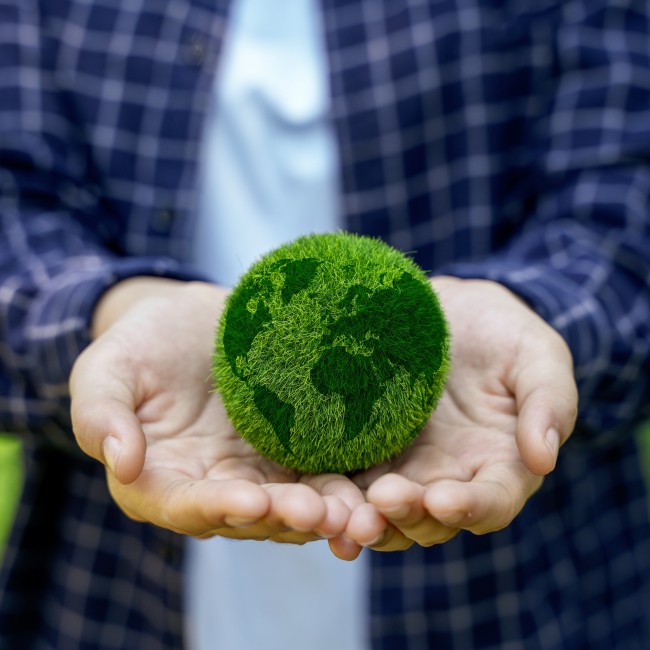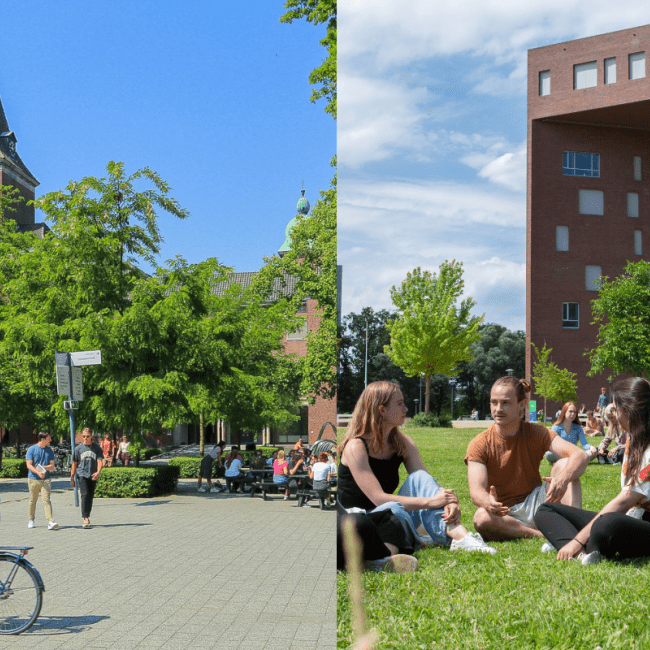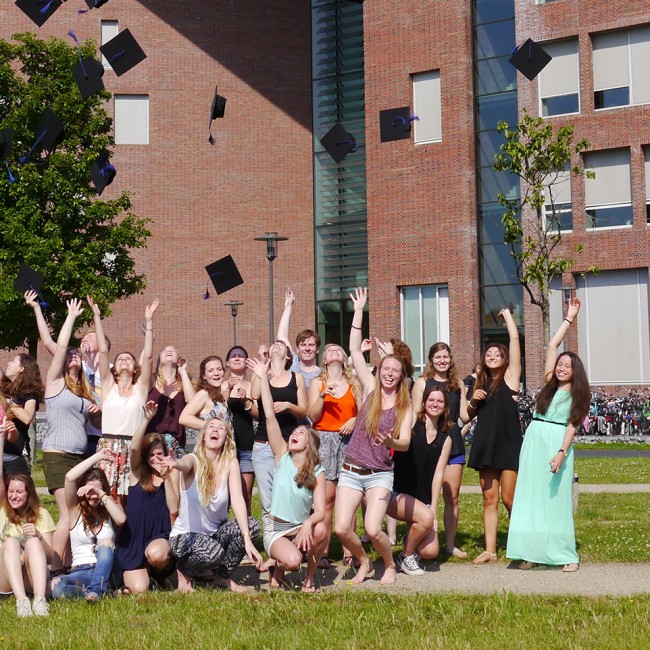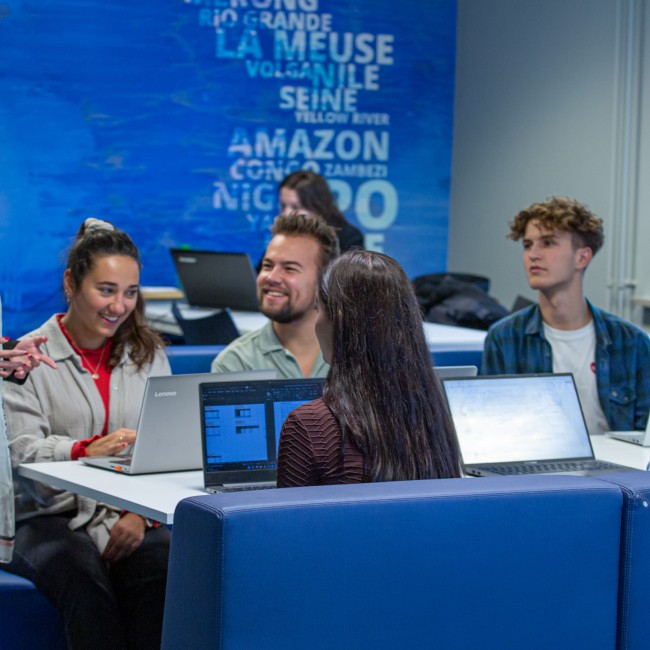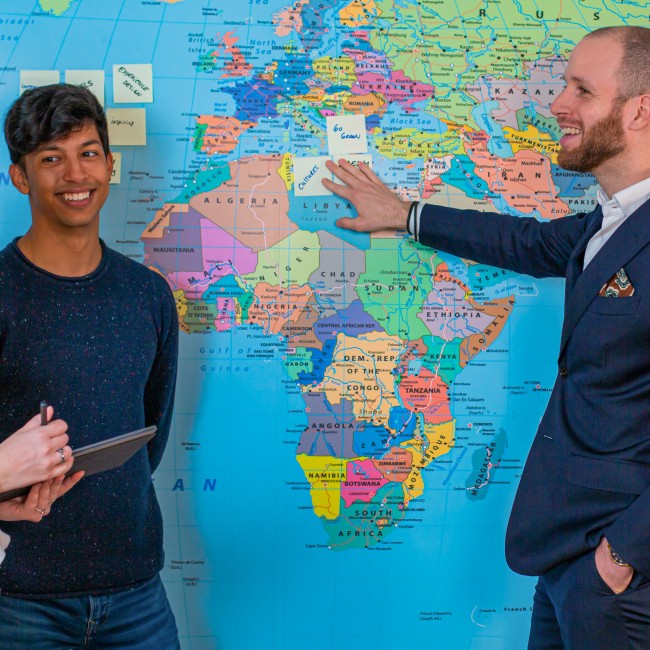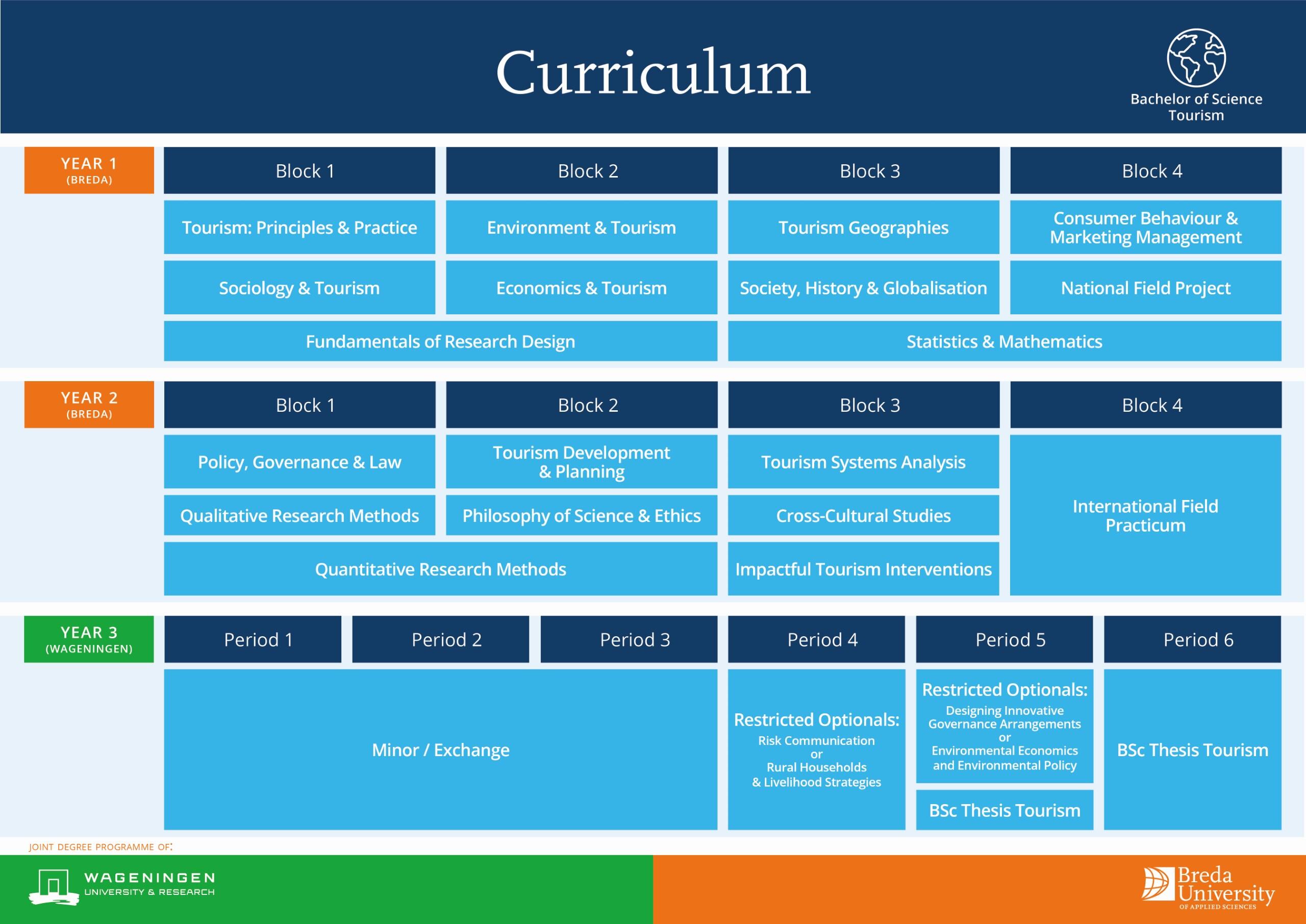Come and meet us
Walking around on campus is the best way to truly experience BUas. Sign up for one of the upcoming events or activities.
Why this study programme at BUas?
- Interdisciplinary degree programme with challenging international research projects
- Relevant topics: sustainability, climate change, globalisation, quality of life
- Small-scale, intercultural study environment focusing on personal development
Study overview
Course content
You will spend years 1 and 2 studying in Breda. In the first year, you will explore the complex and multifaceted phenomenon of tourism from different perspectives. In the second year, you will deepen your knowledge of sustainable tourism development. This year includes a research project at an international destination. The third year takes place in Wageningen and consists of a minor of your own choice and writing your thesis.
More information about the study programme and its courses can be found in the complete programme overview. Below we explain what to expect each year.
- Year 1 in Breda
Get acquainted with the complex phenomenon of tourism. The first year is divided into two semesters. Below you can see some courses and themes covered in lecturers, webinars and practical assignments.
- In Tourism Principles & Practice you will learn to see tourism as a complex system. This introductory module draws on various international examples and provides a framework for the rest of the programme.
- Tourism and the environment are inextricably linked. In the Environment & Tourism module, you will study theories on biodiversity, land and water use, and climate, and investigate the effects on and through tourism.
- The Sociology & Tourism module introduces you to concepts that allow you to unravel and understand social structures and processes that influence tourism behaviour. Just think of the influence of culture, family, religion, and social networks
- No academic degree programme is complete without in-depth research courses. In the Fundamentals of Research Design module, you will lay the foundations of your research skills and learn how to prepare a sound research plan.
More information about the study programme and the courses of year 1 can be found in the complete programme overview.
- Year 2 in Breda
In the second year, you will dive into the world of tourism development; planning and policy, governance and destination management, and cross-cultural studies. You will also continue to work on your academic skills and delve into philosophy of science and ethics in tourism.
In the final semester of this year, you will explore opportunities for sustainable tourism development from different perspectives and disciplines. You will work for four weeks on an international research project where you will be challenged to look at how tourism developments can improve the quality of life at tourism destinations. This research will be conducted at a destination abroad.
Read more about Naomi’s experience during her International Field Project here!
- Year 3 in Wageningen
In the first semester of this year, you will choose a minor. Obviously, you choose something you are interested in. Or something that fits well with the master's you might want to pursue. Examples are a minor in international development issues, business administration or environmental sciences. It is also possible to complete your minor at another university in the Netherlands or abroad.
In the final semester, you will choose two out of four modules in the areas of policy, environment, economics, socioeconomic security, innovation and sustainability.
You will complete your academic bachelor’s degree with a thesis. For inspiration, take a look at the list of former students’ theses.
Teaching method
During your studies, you will work in an international but small-scale learning community. Learning is an active and social process. Besides lectures, you work together with your fellow students in research projects on current issues with a focus on sustainable tourism development. Just think of the responsible expansion of an international airport or the development of tourism in the Biesbosch nature reserve. Excursions, fieldwork and guest lectures will show you how things work in practice.
During your studies, you will gradually gain more independence as the programme progresses. This means that educational support in our learning community is most intensive in the first year and gradually decreases over the next two years. In the online study guide you will find details on the teaching methods and testing for each subject.
Study load and coaching
Study load
The BSc Tourism is a full-time study programme with a study load of 38 to 40 hours per week. Of these, 15 to 18 hours per week are contact hours. You will spend the remaining time on independent study.
The year consists of four terms. In each term, you will take three courses. Each course is timetabled on a fixed day of the week. In practice, this means that you attend education on campus three days a week.
You can view the annual calendar and timetables for first- and second-year students on this page.
- A typical week
Monday
- 15.00 - 18.00 Preparation for this week’s courses (reading articles)
Tuesday
- 11.00- 12.00 Lecture on the History of the European Union
- 12.20- 13.00 Lecture on Governance Reform
- 13.00- 13.45 Lunch break
- 13.45- 14.00 Presentation of classmates on their group work
- 14.00- 14.45 Workshop given by classmates on their group assignment
- 14.45- 16.00 Working on your individual task for the group project
Wednesday
- 11.00- 13.30 Lecture on Descriptive Statistics
- 13.30 – 14.00 Lunch break
- 14.00- 15.00 Tutorial on the R Studio assignment
- 15.00- 16.00 Time to work on R studio
Thursday
- 11.00- 12.00 Feedback on last week’s assignment
- 12.00- 13.00 Lunch break
- 13.00- 14.00 Lecture on Interpretive Phenomenological analysis (IPA)
- 14.00- 15:00 Workshop on Interpretive Phenomenological analysis (IPA)
Friday
- 11.00- 11.30 Handing in notes/questions about an article for the group assignment
- 14.00- 16.00 Working on group assignment
Coaching
Throughout the programme, you will receive specialist guidance from experienced lecturers from both BUas and WUR. Student Advisor Cristina is the first point of contact for all students. She can assist you with decision-making, overcoming study challenges, or addressing other issues. If needed, she will refer you to a student counsellor or a student psychologist.
During your studies, you can also to attend optional masterclasses given by educational psychologist and motivational speaker Dr Martijn van der Spoel. In these inspiring lectures, he discusses common study obstacles and the skills and tools to overcome them. For example, study delays, motivation problems and how to focus on your studies.
Student well-being
BUas encourages and helps you to make the most of yourself, whatever your circumstances. Maybe you have a chronic illness, are a family carer, a competitive athlete, or juggle your studies with running your own business? Our study coaches, student counsellors and student psychologists are here to help. Do you need extra support or advice? Or extra facilities? Then take a look at the options here.
Fieldwork and excursions
Excursions
In the first year, there are several excursions, for example for the Tourism Principles and Practice course in the first semester, and for the Tourism Geography module in the second semester. There is also a ‘WUR Day’ where you get to know Wageningen and its campus.
Fieldwork
At BUas, study trips are called fieldwork. This means working in practice; not only studying theory in the classroom, but also applying your academic skills in challenging projects at the destination together with local organisations and communities. Learning by carrying out fieldwork in a cross-cultural environment is an indispensable experience and very valuable for your personal development and creativity.
At the end of the first year, you will go on fieldwork for one week as part of the National Field Project course. In small groups, you will carry out a quantitative research project. The topic of this project is based on the current research agenda of the teaching team, and focuses on a specific aspect of tourism behaviour, such as media consumption, spending patterns, overtourism or happiness and well-being.
There are also a number of excursions in the second year. And in the final term, you will undertake a four-week fieldwork project in a European destination (International Field Project). Together with your fellow students, you make a plan, and ‘slow travel’ to the destination. Once there, you will research whether and how tourism at the destination can contribute to a better quality of life. You will present your research findings to interested parties at the destination and suggest possible solutions. In this process, you will apply the knowledge and skills you have gained in previous semesters, particularly in the courses of Tourism Systems Analysis, Impactful Tourism Interventions and Cross Cultural Studies. Read more about Naomi's experience during her International Field Project here!
Why fieldwork, excursions and company visits?
- Learning in practice makes learning more personal and meaningful by helping you connect learning to your own life.
- It stimulates your creativity by making you think about unique solutions to problems, ensuring a richer learning experience.
- You also get the chance to reflect on your actions and their consequences, which helps you better understand and apply the concepts you have learned in different situations such as your placement or future job.
- In addition, you will learn that making mistakes is an important part of the learning process and nothing to be afraid of.
- Practical experience speeds up the learning process, because it strengthens the connections in your brain, which makes for faster and more effective learning.
What makes this study programme unique
Field projects
During your studies, you will work on inspiring research projects both at home and abroad.

Direct access to MSc!
Earn an academic master’s degree within four or five years’ time!

Challenging research projects
Working on your academic research skills in relevant research projects of professors in collaboration with leading research institutes.
Admission & application
What are the admission requirements?
The Bachelor of Science Tourism programme is offered jointly by Wageningen University and Breda University of Applied Sciences. Application requirements can be found on the Wageningen University website.
Information about admission requirements
What does this study programme cost?
In the academic year 2025-2026 the statutory tuition fee for bachelor's programmes is €2,601. In addition, you should take extra costs for software, excursions, etc. into account.
How can I apply?
Application for and admission to this programme goes through Wageningen University.
Find out if Bachelor of Science Tourism suits you
Do you want to know if Bachelor of Science Tourism is the right choice for you?
Within five minutes you will find out if this study programme is the right fit for you!

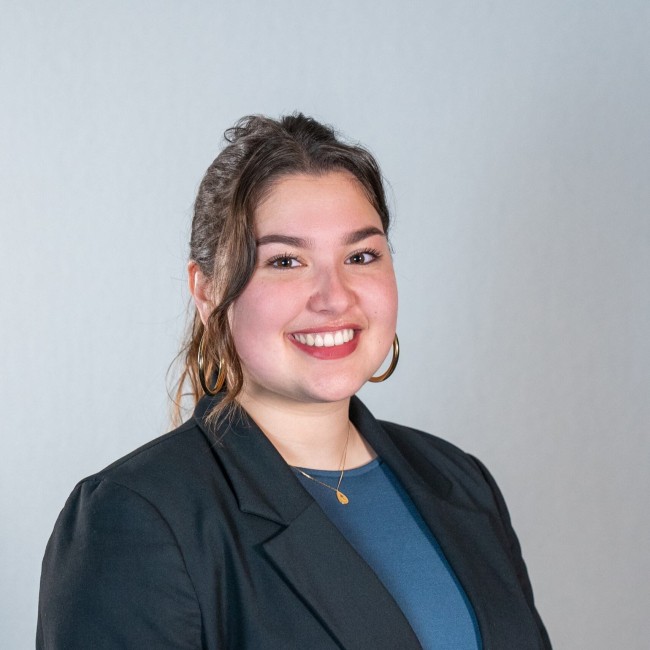
Only BUas offers a tourism study programme at university level
A multidisciplinary approach to sustainable tourism development
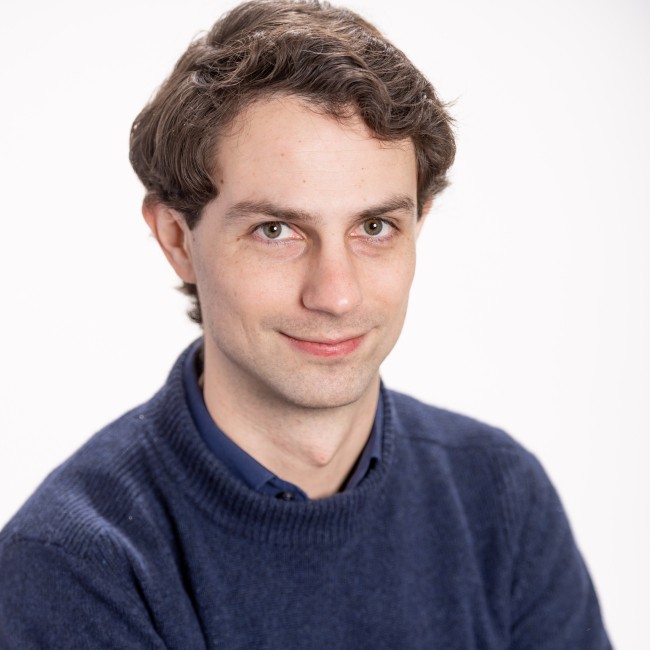
I know how research works due to my academic background

What can you do after your studies?
After your graduation from the Bachelor of Science Tourism degree programme you can decide whether to find a job in the (sustainable) tourism industry as strategic policy advisor, consultant or researcher, or continue on a master's programme such as one of the master's programmes at Wageningen University.

Virtual campus tour
Have a virtual look and discover the Horizon building where you’ll be studying and what more the campus has to offer.
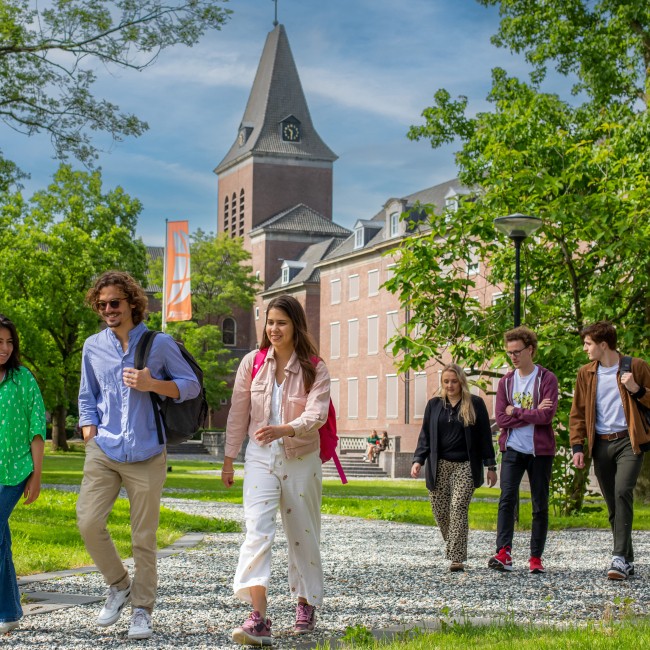
Studying at BUas
What is it like studying at BUas? What does the campus look like and what activities can be undertaken? Is Breda actually a vibrant university town?

Assistance in choosing your study programme
Do you already know exactly what you want to study or do you not have any clue at all? Find out, compare and choose your professional/ academic bachelor’s or master’s programme at BUas.


